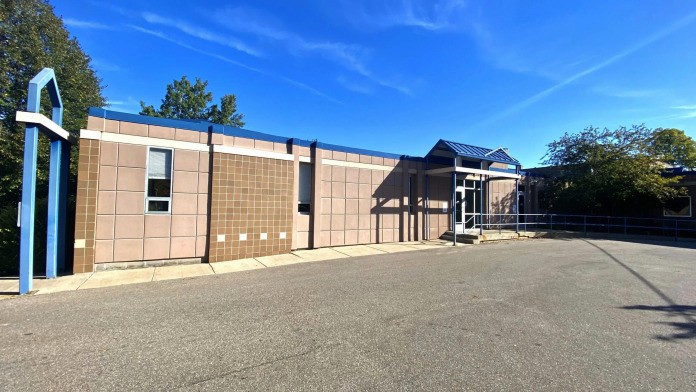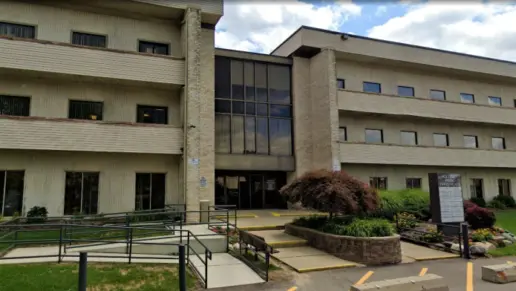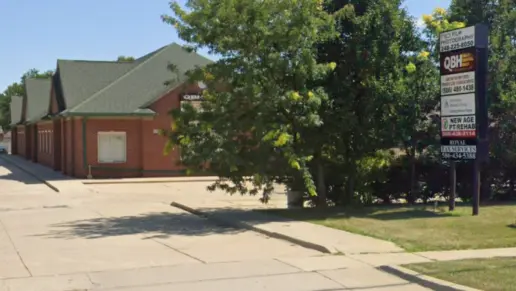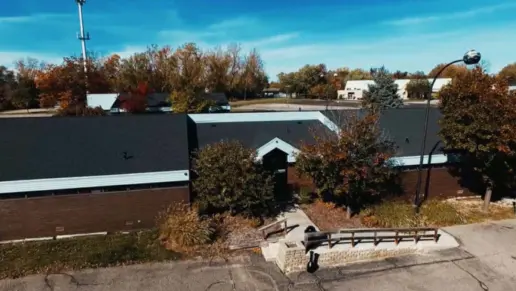About KPEP – Park Street
KPEP provides live-in residences and outpatient programs for people who need structure after serving time in jail. The different programs help former inmates become active members of society. They also help with substance use and co-occurring mental health issues. There are several locations that are overseen from the administration building located on Park Street in Kalamazoo, Michigan. The programs help both men and women. Different programs are offered at their various locations and you can check with Park Street to see what programs are offered where.
The standard residential program includes at least 60 hours a week of structured activities, and 60 hours of community service are required to successfully complete the program. Clients receive substance use assessment and education, cognitive behavioral therapy (CBT), and life skills programming. You’ll also attend 12 Step groups. You can work on your GED and attend a vocational training program. The program is 90 to 150 days, depending on your progress.
The residential substance abuse program (RSA) is a highly structured interventional program. The center specializes in working with people involved in the criminal justice system in this program. Treatment includes individual and group therapy and CBT group sessions that deal with addictive thinking patterns and criminal behavior.
The work release program is for court ordered participants. This program also includes a substance use assessment and education. There’s CBT, Alcoholics Anonymous (AA) and Narcotics Anonymous (NA). Clients also have the opportunity to work on their GED in this program.
There’s an outpatient substance abuse treatment program as well. This program uses a cognitive behavioral approach. The curriculum is based on “Group Treatment for Substance Abuse – A Stages of Change Manual.” The curriculum addresses substance use and criminality and improves the client’s coping abilities through skill development. The program enhances problem solving and reasoning skills to reduce relapse and recidivism.
The outpatient program also uses moral reconation therapy. This is a treatment that reduces criminal behavior by increasing moral reasoning. The program uses a CBT approach, and the program revolves around 16 defined steps. The steps include confrontation of beliefs, behaviors, and attitudes. Clients work on reinforcing positive habits and behaviors and enhancing self concept while decreasing hedonism through the development of better frustration tolerance and moral reasoning.
Latest Reviews
Rehab Score
Gallery

Location
Other Forms of Payment
Self-pay involves paying for treatment out of your own pocket. You can use savings or credit, get a personal loan, or receive help from family and friends to fund your treatment. If you don't have insurance or your insurance plan doesn't cover a specific program, self-pay can help ensure you still get the care you need.
Sliding scale payments are based on a client's income and family size. The goal is to make treatment affordable to everyone. By taking these factors into account, addiction recovery care providers help ensure that your treatment does not become a financial burden to you or your family, eliminating one barrier to care.
Medicaid is a state based program that helps lower-income individuals and families pay for healthcare. Medicaid covers addiction treatment so those enrolled can use their coverage to pay for rehab. When a program accepts Medicaid the client often pays very little or nothing out of their own pocket.
Addiction Treatments
Levels of Care
Treatments
The goal of treatment for alcoholism is abstinence. Those with poor social support, poor motivation, or psychiatric disorders tend to relapse within a few years of treatment. For these people, success is measured by longer periods of abstinence, reduced use of alcohol, better health, and improved social functioning. Recovery and Maintenance are usually based on 12 step programs and AA meetings.
Drug rehab in Michigan provides personalized treatment to help individuals break this cycle and regain control of their lives. Treatment methods are used in various levels of care, including inpatient rehab, partial hospitalization programs, intensive outpatient programs, and standard outpatient treatment.
Substance rehabs focus on helping individuals recover from substance abuse, including alcohol and drug addiction (both illegal and prescription drugs). They often include the opportunity to engage in both individual as well as group therapy.
Programs


Clinical Services
Cognitive Behavioral Therapy (CBT) is a therapy modality that focuses on the relationship between one's thoughts, feelings, and behaviors. It is used to establish and allow for healthy responses to thoughts and feelings (instead of unhealthy responses, like using drugs or alcohol). CBT has been proven effective for recovering addicts of all kinds, and is used to strengthen a patient's own self-awareness and ability to self-regulate. CBT allows individuals to monitor their own emotional state, become more adept at communicating with others, and manage stress without needing to engage in substance abuse.
Group therapy is any therapeutic work that happens in a group (not one-on-one). There are a number of different group therapy modalities, including support groups, experiential therapy, psycho-education, and more. Group therapy involves treatment as well as processing interaction between group members.
In individual therapy, a patient meets one-on-one with a trained psychologist or counselor. Therapy is a pivotal part of effective substance abuse treatment, as it often covers root causes of addiction, including challenges faced by the patient in their social, family, and work/school life.
Life skills trainings involve all the skills a person must have in order to function successfully in the world. These include time management, career guidance, money management, and effective communication. Truly successful addiction recovery is based on the ability to not only live substance-free, but to thrive. Life skills teaches the practical necessities of functioning in society, which sets clients up for success in life, and therefore sobriety.
Accreditations

The Commission on Accreditation of Rehabilitation Facilities (CARF) is a non-profit organization that specifically accredits rehab organizations. Founded in 1966, CARF's, mission is to help service providers like rehab facilities maintain high standards of care.
CARF Accreditation: Yes
Contact Information
519 South Park St.
Kalamazoo, MI 49007


